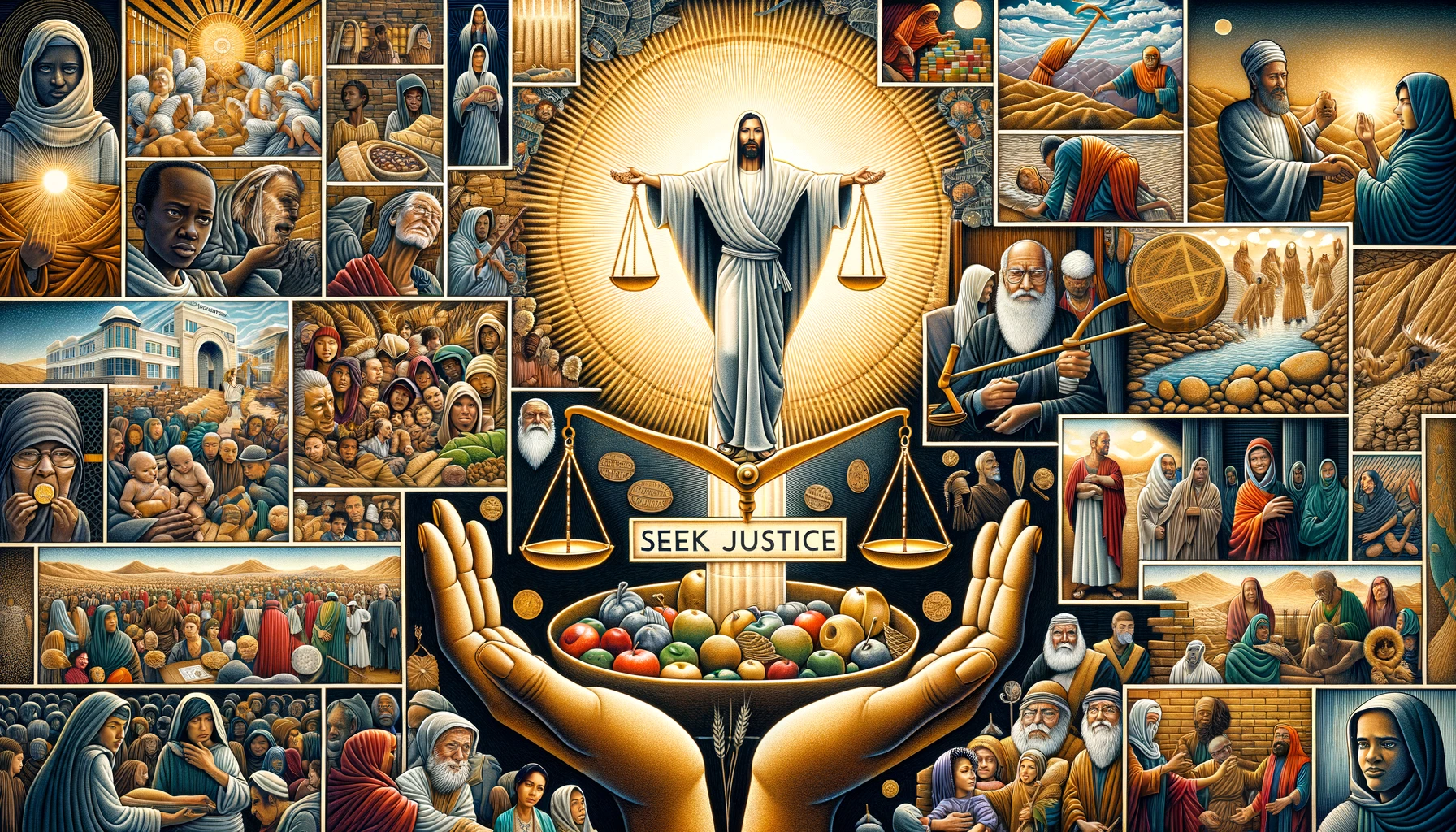
For many, the term “justice” in the Bible may conjure images of divine retribution or the punitive measures of the Old Testament law. While the idea of “criminal justice” is undoubtedly a facet of biblical teaching, it’s essential to delve deeper into Scripture to grasp its fuller and more nuanced depiction of justice. This article invites you to reconsider the concept of justice in the Bible. It may not be what you think it is.
The Broad Spectrum of Biblical Justice:
The Bible offers a comprehensive perspective on justice, which extends far beyond retributive justice or the simple consequences of wrong actions. It frequently touches upon issues of societal well-being, fairness, equity, and the dignity of every human being.
God’s Concern for the Marginalized:
Throughout the Bible, God’s heart for the marginalized, oppressed, and downtrodden is evident. Consider these examples:
- Widows and Orphans: Repeatedly, the Bible speaks of God’s concern for widows and orphans, urging His followers to defend their rights (Deuteronomy 10:18, James 1:27).
- Strangers and Foreigners: Leviticus 19:34 reads, “The stranger who resides with you shall be to you as the native among you, and you shall love him as yourself.” Such teachings are undeniably in the realm of social justice, urging believers to embrace and care for those outside their immediate community.
Economic Justice:
The Bible provides numerous teachings on economic justice:
- Year of Jubilee: Leviticus 25 discusses the Year of Jubilee, a time every 50 years when debts were canceled, slaves were set free, and land was returned to its original owners. This was a societal reset to prevent the perpetual oppression of the poor.
- Fair Wages: In James 5:4, employers are warned against withholding wages from their workers, highlighting the importance of economic fairness.
Prophetic Calls for Justice:
The prophets were notable advocates for treating others fairly. For instance:
- Amos: Amos castigated the Israelites for turning a blind eye to the plight of the poor while indulging in luxury. He called for justice to “roll down like waters” (Amos 5:24).
- Isaiah: Isaiah rebuked the people for their religious rituals devoid of true righteousness and called them to “learn to do good; seek justice, correct oppression” (Isaiah 1:17).
5. Jesus’ Brand of Justice:
Jesus’ ministry was inherently intertwined with treating all equally.
- The Beatitudes: In His Sermon on the Mount, Jesus pronounced blessings on the poor, the meek, and those who hunger and thirst for righteousness (Matthew 5:3-10).
- Good Samaritan: The parable of the Good Samaritan (Luke 10:25-37) challenges the cultural norms of the day, urging believers to break boundaries and show compassion universally.
While the Bible indeed addresses issues of sin and its consequences, equating biblical justice solely with criminal justice is a limited view. The heart of God, as presented in Scripture, beats fervently for societal righteousness, equity, and the well-being of all. If you claim to follow Christ, embracing and acting upon the Bible’s robust teachings on what we would call social justice today aligns us more closely with God’s heart for His creation. If you don’t seek Justice and Equality for those God has Created, you simply aren’t following Christ. And if you are someone who mocks social justice — well, friend, you’re mocking Jesus.







